One More Wave: The Navy SEALs Helping Disabled Veterans Heal With Custom Surfboards
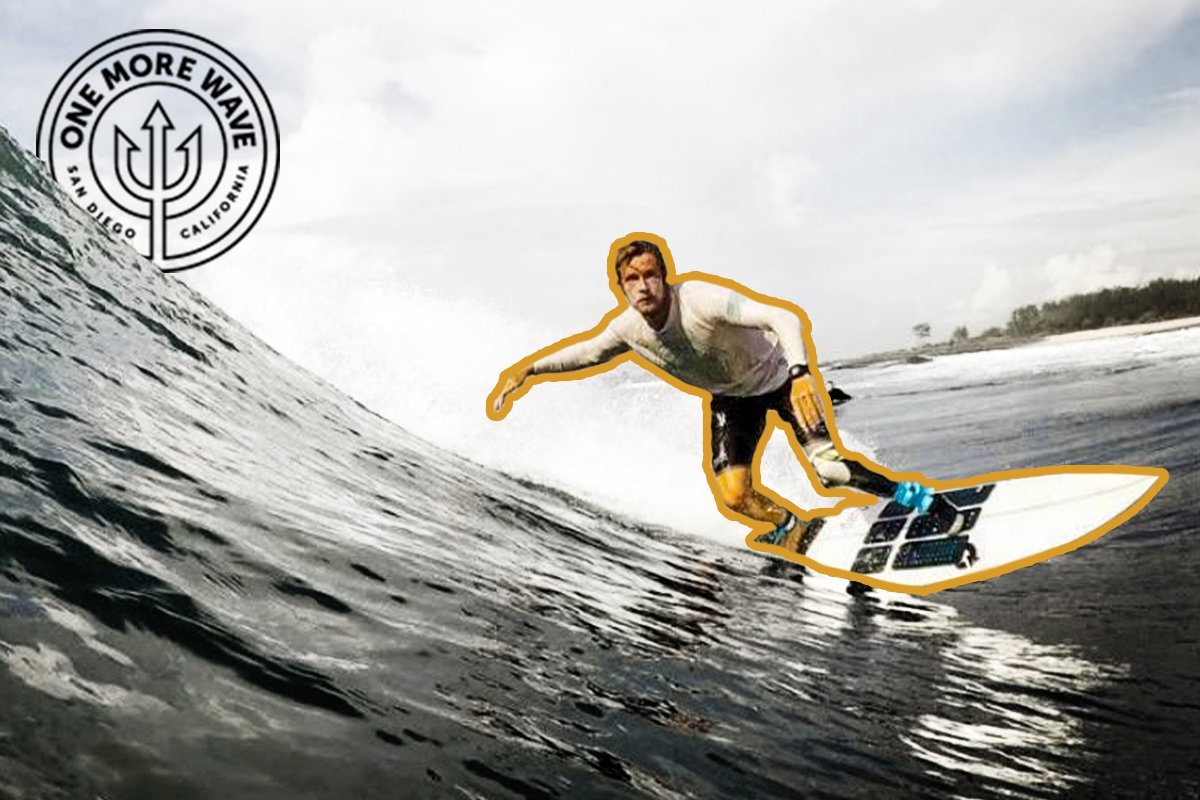
Alex West threw his wetsuit and surfboard in the bed of his truck. He had spent the morning surfing off Del Mar on a picturesque Southern California day. After 15 combat deployments, injuries, and relentless stress, the only place that calms his nerves is the ocean. The active-duty Navy SEAL got in his truck but couldn’t stop thinking about his surf partner that morning — a Marine who lost his leg in Afghanistan.
The Marine had struggled to catch the small, 3-foot waves, falling often, but always with a smile.
“Why are you smiling — is it because it’s so beautiful?” West had finally asked him.
“Nobody is staring at me out here,” he’d replied, “at the guy with the missing leg. When I’m on the wave, there’s no more pain.”
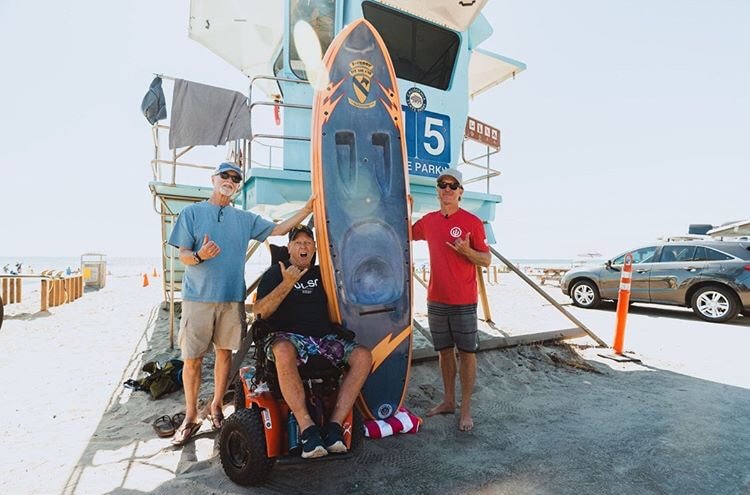
West started his truck and drove to a bookstore, an idea beginning to form in his mind.
He went to the nonprofit section, but his motivation quickly dwindled. These book-writing nonprofit founders and experts all had Ph.D.s. His confidence ebbing, he felt a sense of insecurity that was almost too much to bear. Then his eyes glanced toward the bottom bookshelf, and in the corner, as if it were hiding, was a yellow book called “Nonprofit Kit for Dummies.”
That March morning with the Marine soon led West to start One More Wave, a 501(c)(3) nonprofit that provides wounded and disabled military veterans with customized surfing equipment and community. With the help of world-class surf instructors, board builders, and graphic designers, One More Wave makes surfboards for injured vets who thought they’d never surf again. For one lifelong surfer and U.S. Army veteran who was paralyzed from the waist down by an electrical explosion while working on an aircraft, they developed a personalized waveski. Part surfboard, part kayak, it was what that vet needed to get back on the waves. The work comes at no cost to the veterans.
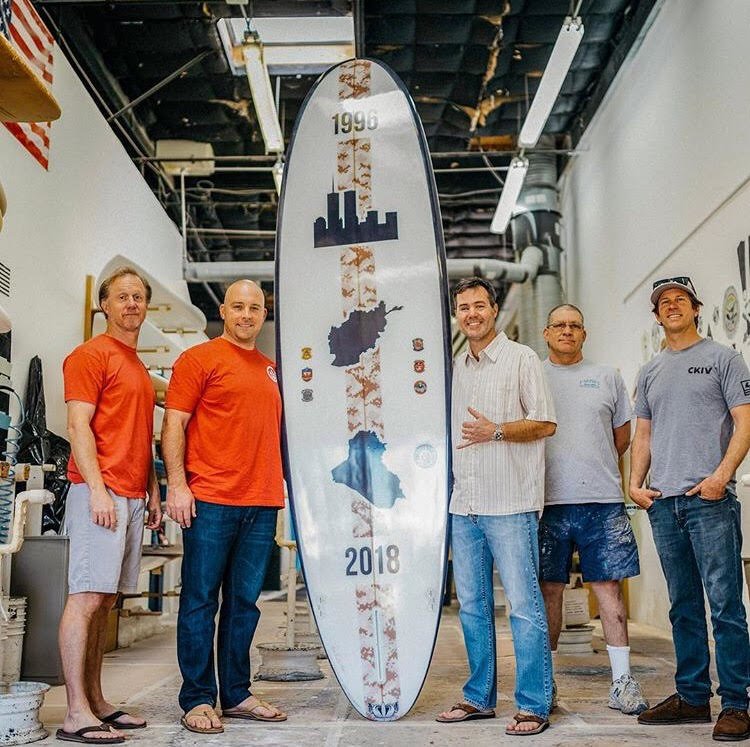
“Being in the water puts me in a state of calm,” West told Coffee or Die, referring to the healing power of surf therapy. “And catching a wave puts me in a state of primal happiness.”
Based in San Diego, California, One More Wave provides an experience unlike any other that takes veterans, who may never have surfed before, assesses them during a surf session, and uses that analysis to craft equipment that benefits every one of their needs.
Army veteran Jose Martinez rides a One More Wave board. The triple amputee, missing a finger from his left hand, lies in the prone position, flat on his stomach. He uses a custom handle built into the board for balance and steering because without it, he wouldn’t be able to catch a wave.
Dozens of veterans with prosthetic legs ride One More Wave boards, too. A regular board is not sturdy enough to withstand the force focused on one spot from a prosthetic, so One More Wave reinforces its boards with carbon fiber or fiberglass.
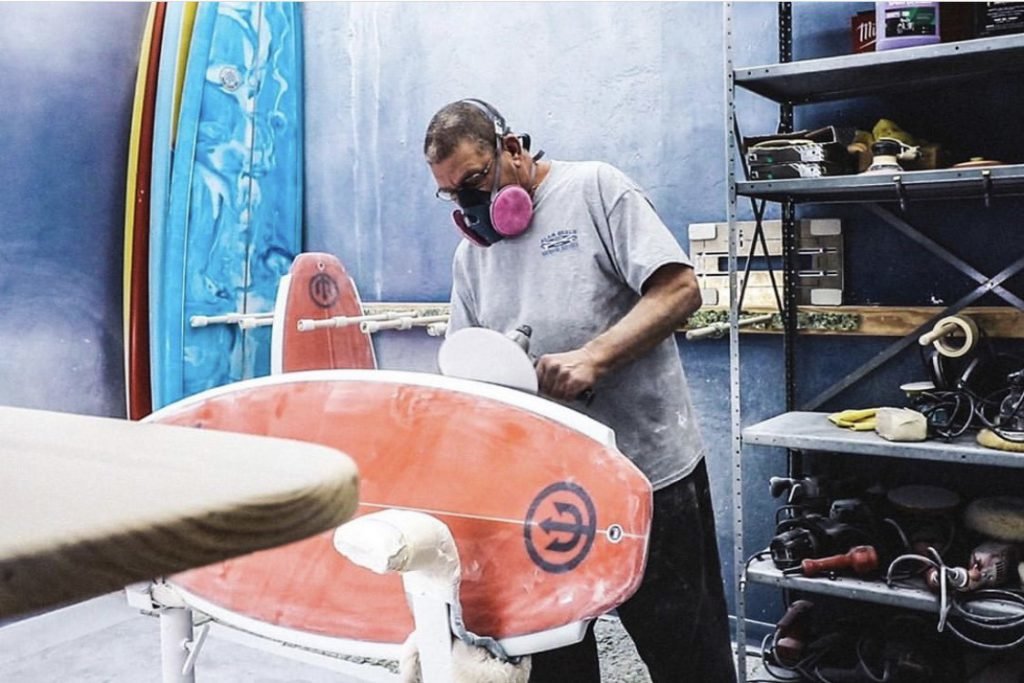
The one-stop surf shop truly specializes in shapes for all surfers and adaptive athletes. Dan Van Zanten from Van Zanten Surfboards brings the most experience to the team. He’s been hand shaping surfboards for some 40 years. Alan Beels from Alan Beels Surfboard Services contributes his top-notch focus to the glassing portion of surfboard construction.
One More Wave began with a vision and innovates its boards to the highest standards in customization, but it’s not just about gear. Since its inception, One More Wave has morphed into a military surf community, with more than 13 chapters in the U.S. and around the world, and a network of more than 600 volunteers who help veterans get in the water and harness the power of surf therapy on a daily basis.
Surfing and the military have a long history, both in times of combat and as a medium for healing on the homefront. During the Vietnam War, the China Beach Surf Club was a spot where soldiers and Marines gathered on the beach and surfed when they were not participating in active combat operations. Military veterans soon recognized how water-based activities help relieve stress related to combat and physical injury, and promote a sense of overall well-being.
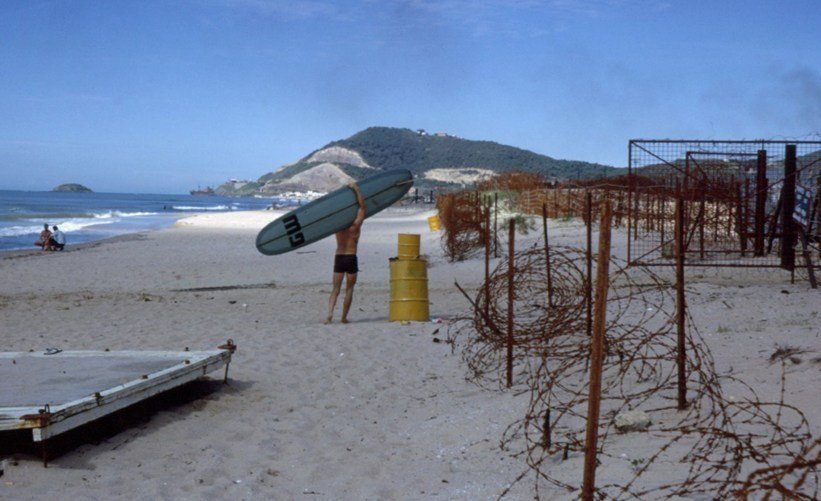
Carly Rogers, Ph.D., an occupational therapist and surf pioneer, coined the term “surf therapy” in 2004. “Flow is your pure natural engagement with an activity, where nothing else seems to matter and you are completely in the moment,” Rogers said in a 2014 TEDx Talk. Surfing, she said, is inherently a flow state.
For a lot of Navy SEALs, like West, who first learned to surf during his time with the SEALs — and for military veterans across all service branches — surfing became a therapeutic outlet when home in between deployments and in life after service.
West dedicated his life to military service, participating in the invasions of both Afghanistan and Iraq with SEAL Team 3. “It was a really exciting time to be in special operations,” he told Coffee or Die. “Then I went to the Development Group [Naval Special Warfare Development Group] and I was there for 11 years.”
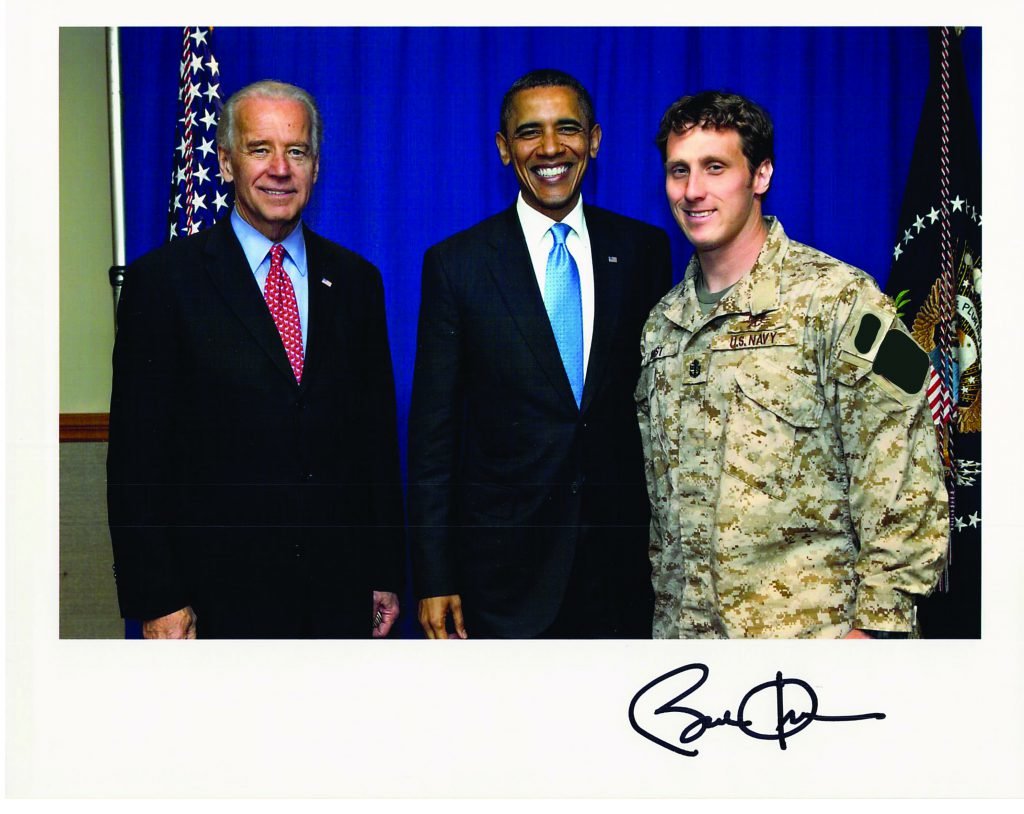
Combat veterans who have served during the nearly 20-year-long global war on terrorism have returned home after an unprecedented amount of time spent in combat compared with service members from any other period in U.S. military history. The toll has caused a suicide epidemic among veterans dealing with mental and physical injuries. After West’s second helicopter crash in combat, he checked into a traumatic brain injury (TBI) clinic for a month. Inside the clinic he checked every box: 100 percent disabled, diagnosed with clinical depression, anxiety disorder, and post-traumatic stress.
At the clinic — the National Intrepid Center of Excellence (NICoE) — West was introduced to art therapy, one of the many modalities the program offers to help cope with issues concerning mental health. When West transferred to a training-cell position on the West Coast in 2014, he envisioned incorporating art as a secondary layer of therapy, an enhancement to how surfing has helped him in his own personal recovery. The concept is one of the cornerstone features of One More Wave surfboards and their bespoke one-of-a-kind graphic designs.
West had vision, but aside from his nonprofit-for-dummies book, he began with little support. He sold T-shirts from the back of his pickup truck in Coronado to pay for the early startup costs. His first designs had Neptune breaching the water to throw his trident — a fitting emblem for a water-born organization founded by a Navy SEAL.
Volunteering for the Balboa Naval Hospital Surf Clinic, West quickly noticed many of the veterans coming through the program were amputees, burn victims, or had physical issues that could impede them from getting on normal surfboards. Other organizations ran surf therapy clinics, but no one was making these adaptive boards.
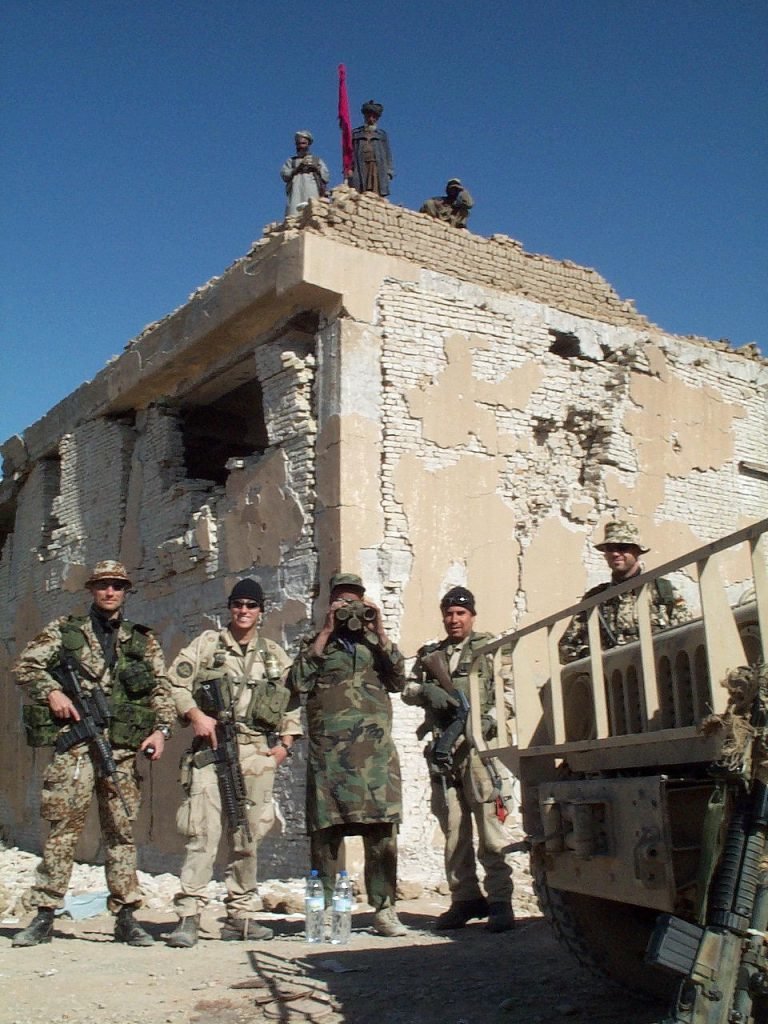
West rummaged together enough funds to create a customized surfboard for what he would dub the first One More Wave “team rider.” The post-9/11 military nonprofit scene focuses heavily on providing care for combat veterans, but West felt many noncombat veterans were alienated and not receiving the help they needed. This was the case with Chris Small, who lost his leg in a car wreck in Okinawa, Japan. When West broke the news to Small that he was getting his own personal surfboard, Small bowed his head in shame, feeling an emotion he’d felt so many times before. He had thought he would be denied because his injury wasn’t combat related.
“I thought, fuck that, Chris, you are our first guy and you are not getting away from us,” West said, and he told him so. His nonprofit wasn’t going to be for SEALs only, or special operations forces, or combat vets, but for all veterans who wore the flag on their sleeve. “I always thought back to being on all those deployments. We were hunting terrorist cells that were inflicting heavy casualties on soldiers and Marines — those young Marines were the ones who would guard our bases, or they were the ones who were the brothers and the sisters of people back home,” West told Coffee or Die. “I never wanted to put some weird elitism on anything.”
Small, standing on one leg and supported by his crutches, would be the first veteran officially helped by One More Wave.
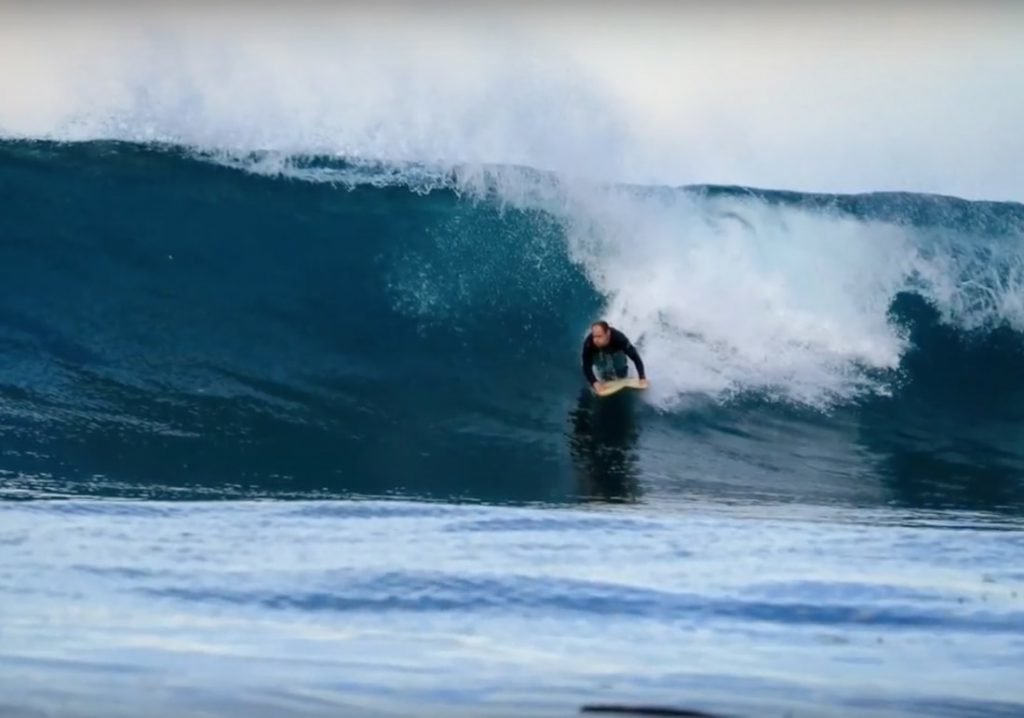
West had the vision, and now he had a person who needed his help, but he soon realized he didn’t have the entrepreneurial toolkit to get a 501(c)(3) off the ground. Then, in 2016, Kyle Buckett offered to help.
“Where I was excelling naturally at some things, maybe it was art or vision or leadership and creativity and things like that — I was lacking at some of the administrative side of things,” West said, expressing his appreciation for Buckett’s willingness to step into that role. “Him coming in was a great yin to my yang because he was the one that grounded us.”
Buckett, another Navy SEAL from West’s training command, brought a wealth of knowledge as a successful entrepreneur, running small businesses, managing finances, and taking leadership lessons learned from nearly two decades in the teams. He immediately filled the void, running the nonprofit as if it were a business.
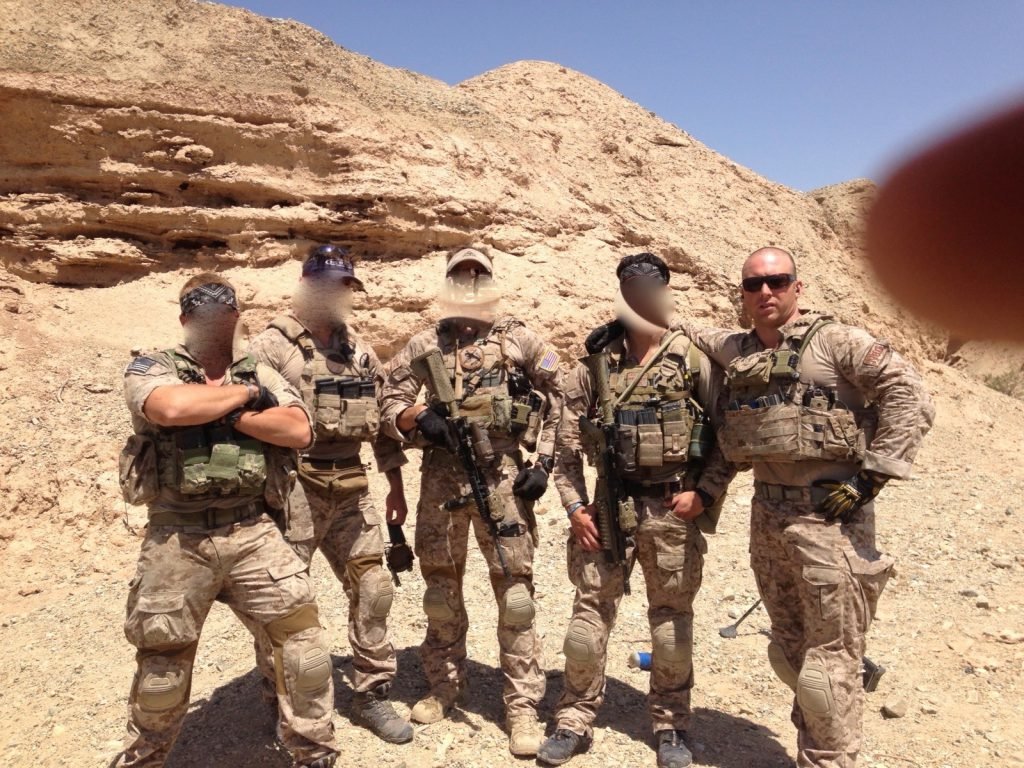
“Surfing has been something that has been good for me coming back from deployments, from multiple tours,” Buckett told Coffee or Die. “When you actually paddle in and stand up on a wave, your brain data dumps everything that you might have been thinking about. It removes all the distractions. You are focused 100 percent in that moment of time.”
When a veteran applies at One More Wave, the first person they talk to is Rob Garnett. He spent nearly 23 years as a Navy SEAL, including as a plankowner (or founding member) of Naval Support Activity One (since renamed to Special Reconnaissance Team 1). Buckett and Garnett were recruited together in 2006 and deployed several times overseas, only to return each time with more damage than when they left. Garnett personally suffered a series of traumatic brain injuries.
During a ship boarding operation, Garnett was the lead climber, assigned the task of throwing a titanium hook over the railing of the much larger ship they were seizing. His boat hugged the ship’s side, bobbing up and down in the waves, as Garnett climbed the caving ladder rung by rung. Before he could reach the top, the hook came off. Garnett plunged 35 feet, and his head slammed into the bottom of his boat. The next eight to ten hours were a haze.
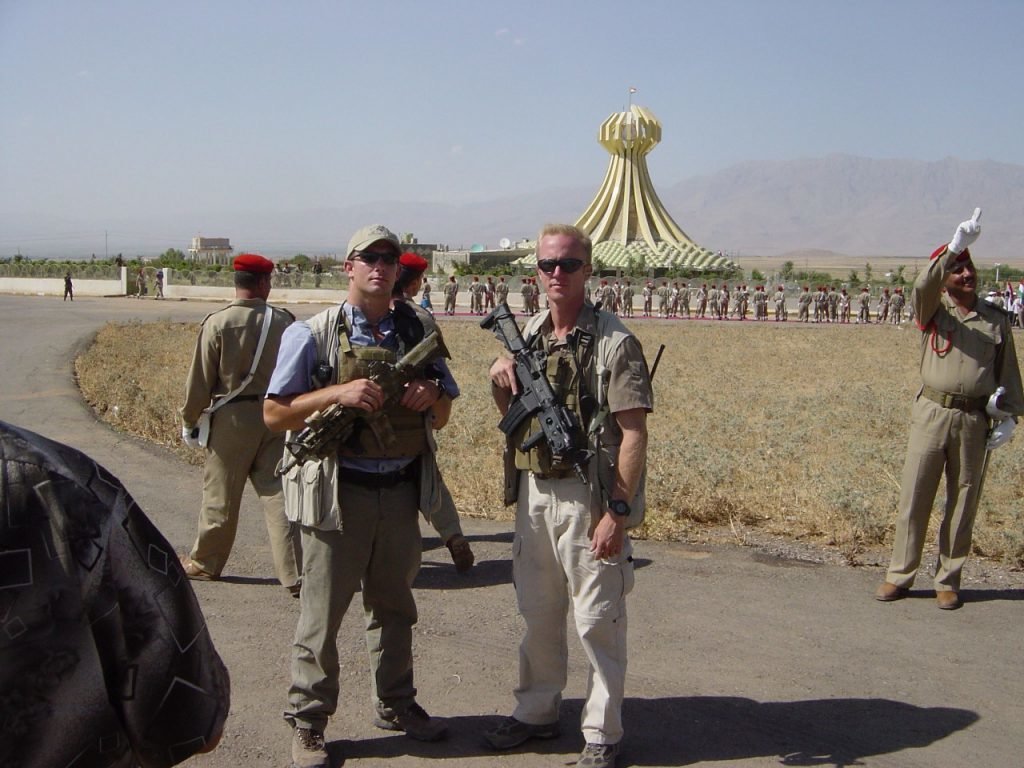
That was Garnett’s first TBI. Then came a grenade explosion in an 8-by-8-foot room that blew both eardrums. In Afghanistan, on his final deployment in 2010, he was in a large IED blast. The 120-pound bomb lifted his vehicle up and threw it across the street. Initial safety checks found no signs of physical harm, but the concussive effect impacted his brain health in a way that hasn’t gone away.
When veterans call One More Wave and get Garnett on the phone, they immediately have someone who knows what they’ve been through. He shares his story, and encourages the same from them.
“My favorite part is I get to meet every single person and hear the stories,” Garnett told Coffee or Die. “I get to share my story, and I’m very open and honest with my personal issues that I have had, both in the military and post, whether it’s emotional or physical.”
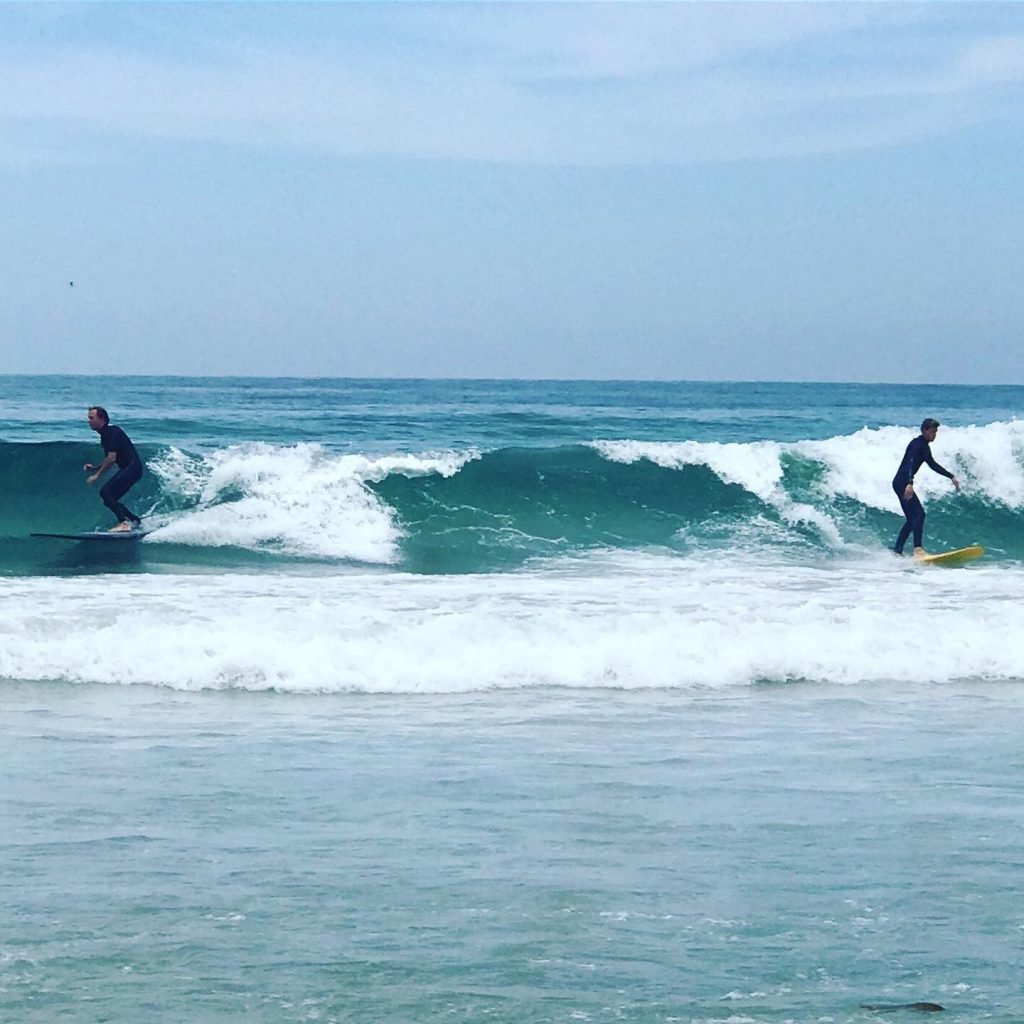
Once a veteran is approved, the process of kitting them out with surfing equipment starts. Then they’re plugged into a network of surf therapy sessions and the wider community of veterans and volunteers who want nothing more than to paddle out into the surf.
Eight surfboard bags are sprawled out across the sand. Beyond them is a cluster of surfers dressed in wetsuits, exchanging jokes and laughs. Garnett kneels over his black-and-purple surfboard and applies some wax. It’s 7 a.m. at Cardiff State Beach in Encinitas, California, and Buckett invites the surfers to all come together for a moment at the gray One More Wave tent.
He unzips one of the surfboard bags and singles out a team rider waiting for the big reveal. Surrounded by his kids, the surfer can’t contain his excitement. It’s his first custom surfboard. Buckett grabs the second bag, and another. All eight veterans are gifted a unique board, a unique means of healing. Garnett helps these eight new One More Wave team riders wax their new boards, while other team riders cheer on the process they, too, have experienced.
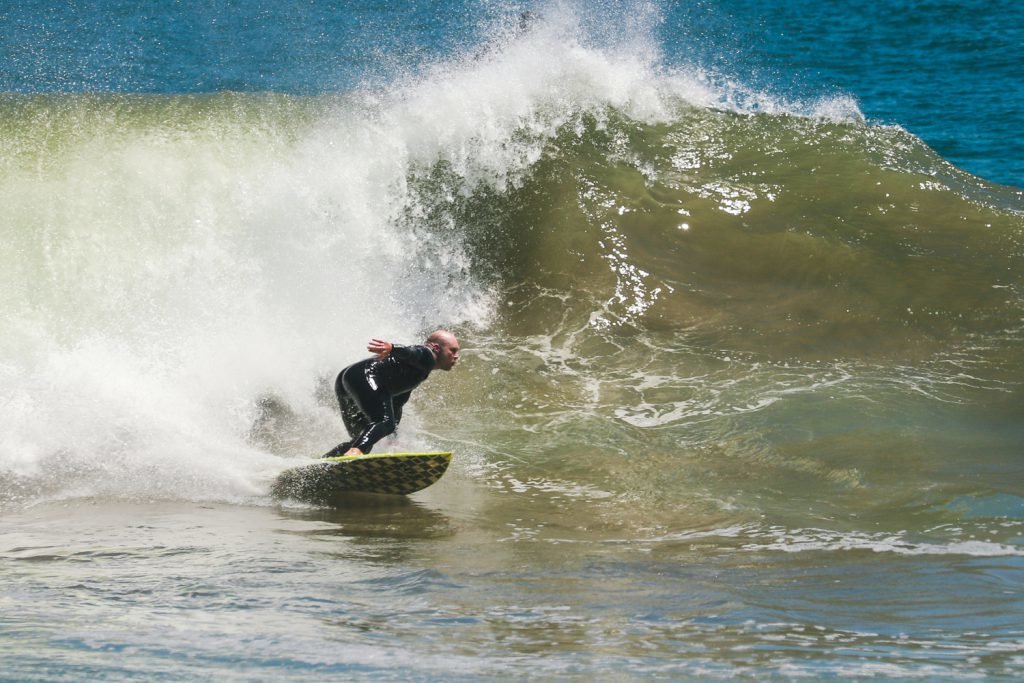
The cold water slides up to their ankles as the group walks into the ocean to reach the surf zone. Dave Simmons, a former Marine, places his surfboard in the water, beside him to his right, as it’s too early to paddle out to the lineup. On the top of his board, he sees the face of his smiling 2-year-old daughter, Lola, looking up at him. The same image that he carried in his helmet on his combat tours is now with him every time he paddles out to surf.
On the beach, powering his iPhone to life, Buckett taps his thumb to open the GroupMe app, which shows text notifications from all of the One More Wave surf chapters, all over the world. Dozens of conversations between team riders and volunteers planning similar surf sessions light up. The mission of One More Wave is to provide veterans the equipment they need to surf, but it has become so much more. Buckett slides off the app, and smiles. “Well,” he says, “shall we?” He nods toward the water. “I didn’t wake up this early just to stand on the sand.” He joins the eight new surfing vets in the water, healing themselves and one another.
Editor’s Note: A previous version of this article said a U.S. Marine Corps veteran who was paralyzed by an electrical explosion received a personalized waveski. The person in question was a veteran of the U.S. Army, not Marine Corps. The article has been updated to reflect this.

Matt Fratus is a history staff writer for Coffee or Die. He prides himself on uncovering the most fascinating tales of history by sharing them through any means of engaging storytelling. He writes for his micro-blog @LateNightHistory on Instagram, where he shares the story behind the image. He is also the host of the Late Night History podcast. When not writing about history, Matt enjoys volunteering for One More Wave and rooting for Boston sports teams.
BRCC and Bad Moon Print Press team up for an exclusive, limited-edition T-shirt design!
BRCC partners with Team Room Design for an exclusive T-shirt release!
Thirty Seconds Out has partnered with BRCC for an exclusive shirt design invoking the God of Winter.
Lucas O'Hara of Grizzly Forge has teamed up with BRCC for a badass, exclusive Shirt Club T-shirt design featuring his most popular knife and tiomahawk.
Coffee or Die sits down with one of the graphic designers behind Black Rifle Coffee's signature look and vibe.
Biden will award the Medal of Honor to a Vietnam War Army helicopter pilot who risked his life to save a reconnaissance team from almost certain death.
Ever wonder how much Jack Mandaville would f*ck sh*t up if he went back in time? The American Revolution didn't even see him coming.
A nearly 200-year-old West Point time capsule that at first appeared to yield little more than dust contains hidden treasure, the US Military Academy said.












